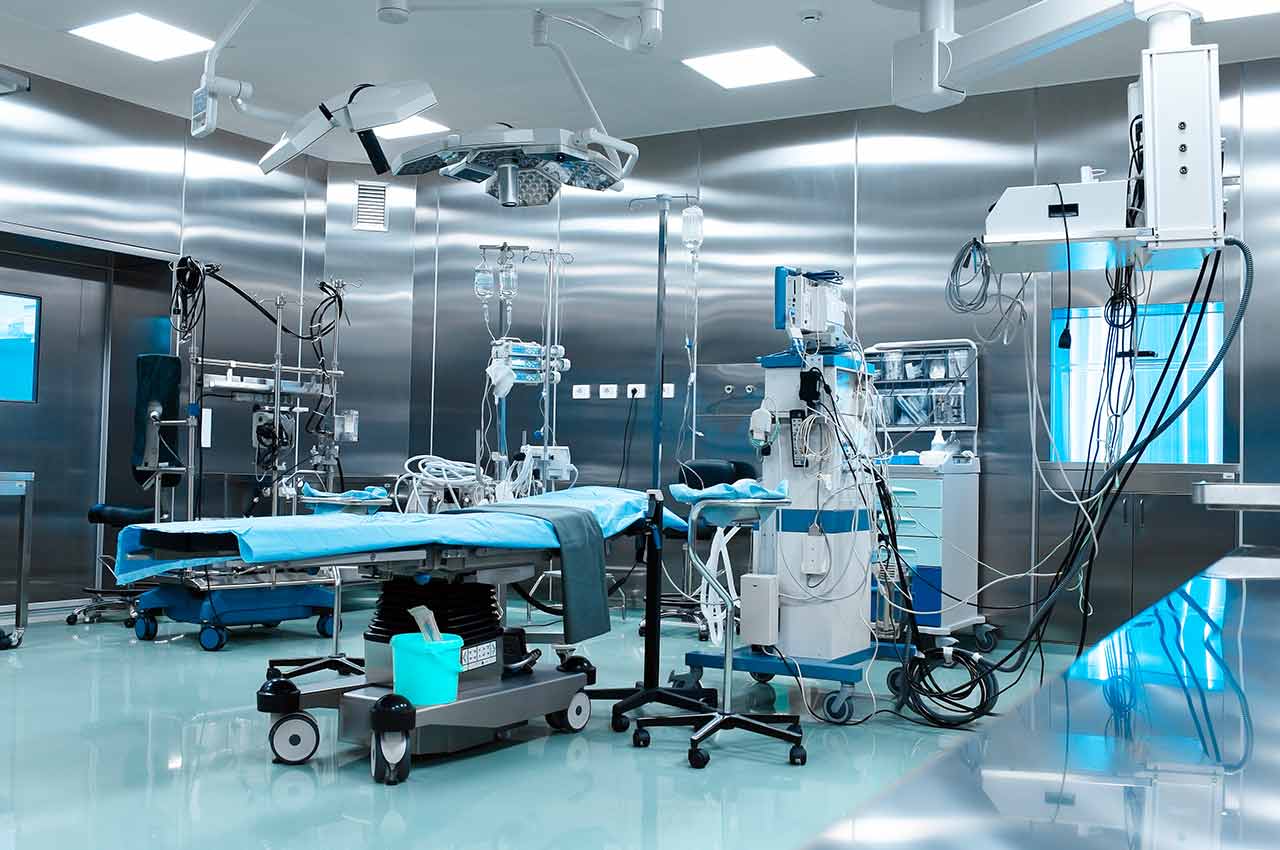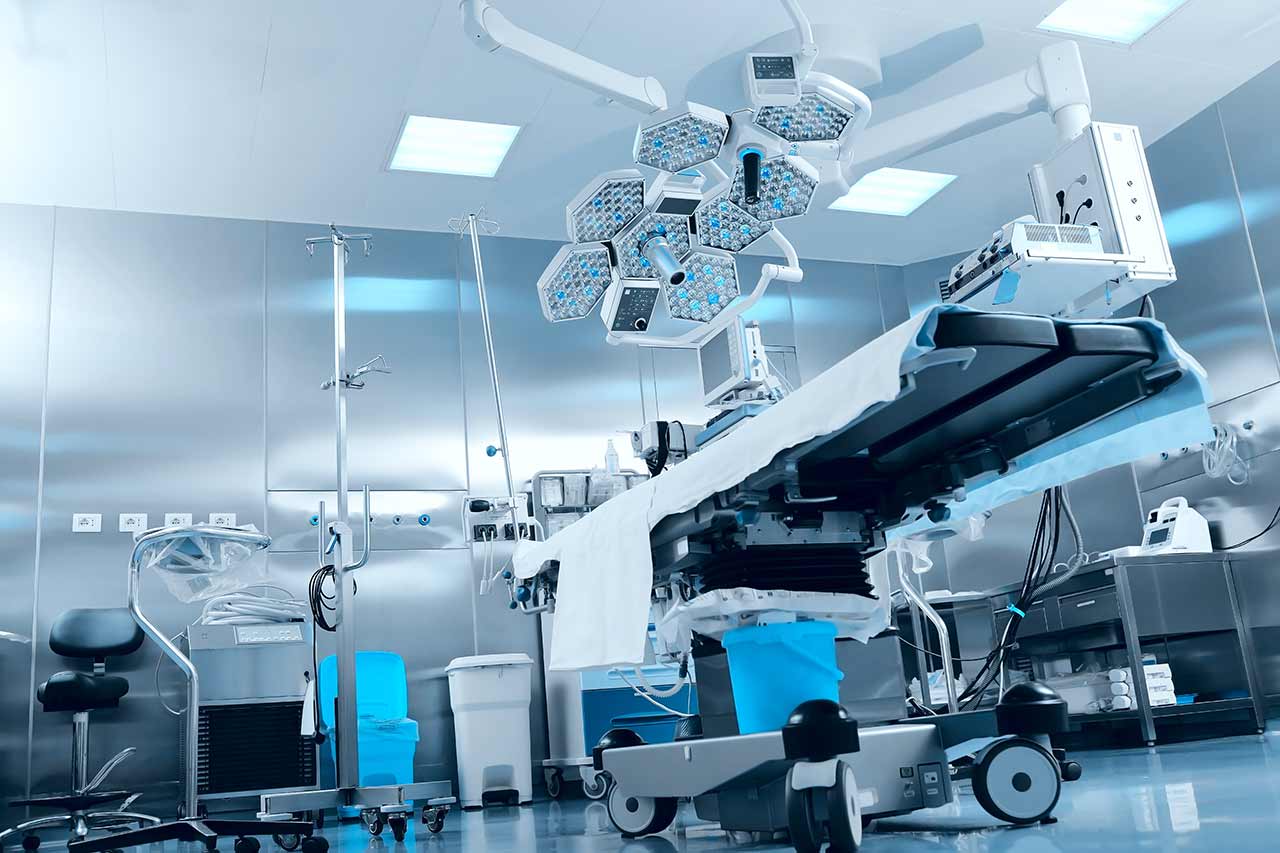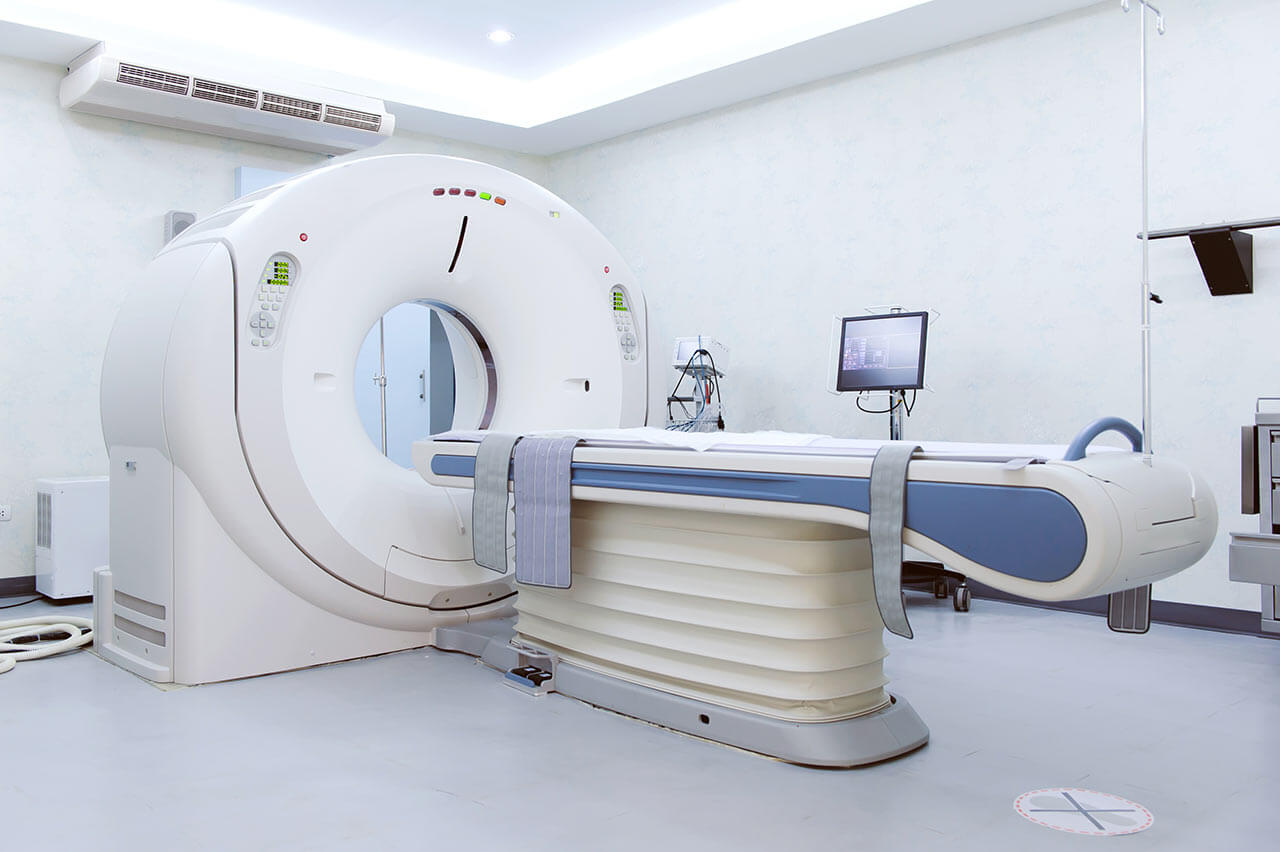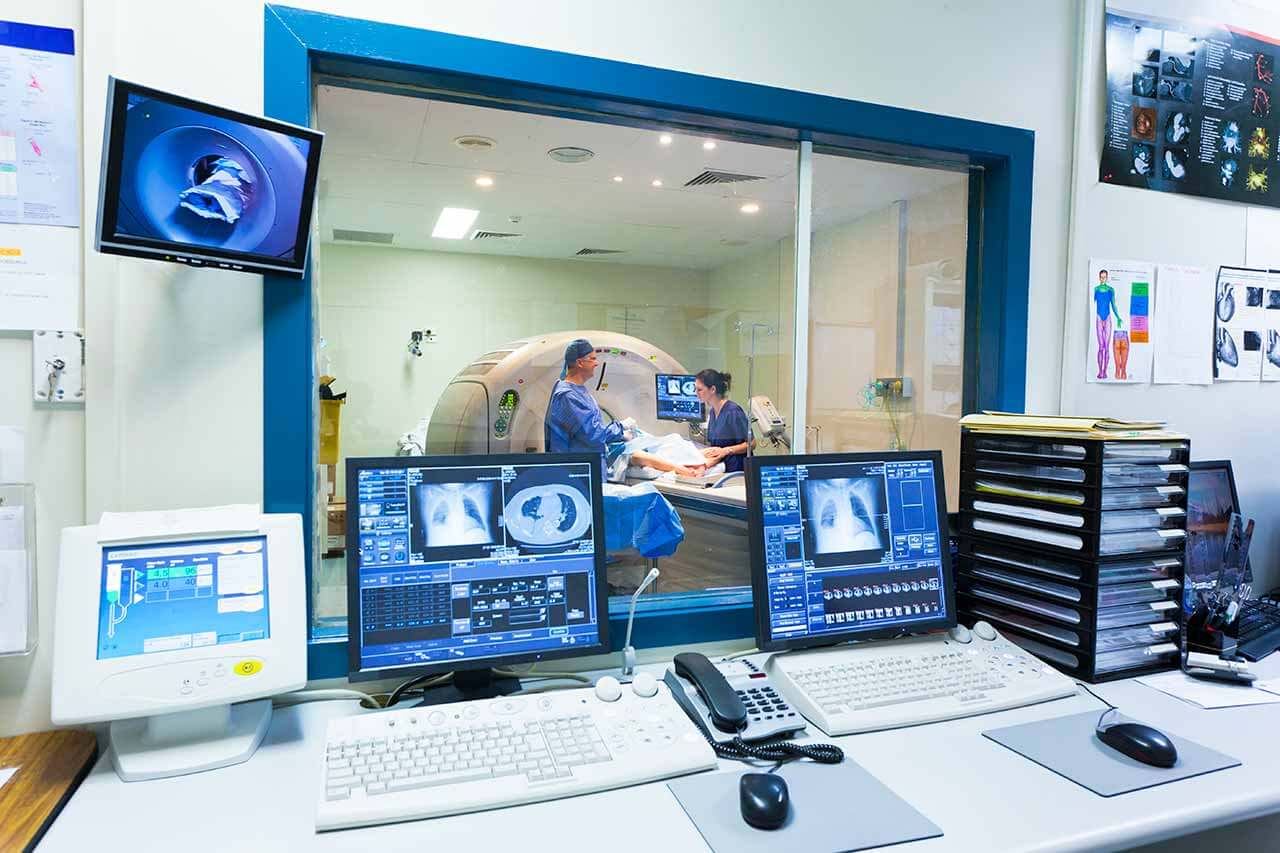
The program includes:
- Initial presentation in the clinic
- clinical history taking
- review of medical records
- physical examination
- laboratory tests:
- complete blood count
- general urine analysis
- biochemical analysis of blood
- inflammation markers (CRP, ESR)
- hormonal examination (estrogen, progesterone,
prolactin, DHEA-s, testosterone, FSH, LH)
- gynecological examination:
- colposcopy
- vaginal swab
- pelvic ultrasound examination
- transvaginal ultrasound examination
- breast ultrasound examination
- thyroid ultrasound examination
- nursing services
- consultation of related specialists
- treatment by chief physician and all leading experts
- explanation of individual treatment plan
Required documents
- Medical records
- Results of hormone blood tests (if available)
Service
You may also book:
 BookingHealth Price from:
BookingHealth Price from:
About the department
The Department of Gastroenterology, Hepatology, Pulmonology, Allergology, Endocrinology and Diabetology at the University Hospital Frankfurt am Main offers the full diagnostic and therapeutic range of services in the fields of its specialization. The department specializes in liver pathologies and oncological diseases of the bronchi, endocrine glands, liver, biliary tract, pancreas and other gastrointestinal organs. In addition, the department is a recognized Diabetes Center. The service range is complemented by dietology. The treatment is provided in accordance with the international protocols using the very latest medicines. The Chief Physician of the department is Prof. Dr. med. Stefan Zeuzem.
In the field of gastroenterology and hepatology, the department specializes in the diagnostics and treatment of all diseases of the esophagus, biliary tract, pancreas, liver and other gastrointestinal organs. Special attention is paid to chronic liver diseases and their complications, including cirrhosis and hepatocellular carcinoma, as well as malignant neoplasms of the gastrointestinal tract. The diagnostic and treatment programs are developed by interdisciplinary teams, for example, as part of hepatologic or tumor boards. The department has state-of-the-art medical infrastructure, including devices for endoscopic and ultrasound examinations, laboratory for the diagnostics and treatment of gastrointestinal and liver pathologies.
The focus of the department's pulmonologists and allergologists is on the treatment of diseases, such as bronchial asthma, chronic obstructive pulmonary disease (COPD, emphysema), as well as cystic fibrosis. An important field is also the diagnostics and treatment of malignant lung lesions (bronchogenic cancer). In the case of the treatment of thoracic pathologies, the department cooperates closely with related specialties, such as cardiothoracic surgeons, radiation therapists, etc.
The department's scope of tasks in the field of diabetology and endocrinology includes the diagnostics and treatment of hormonal diseases, disorders of glucose, lipid and bone metabolism, etc. The department provides optimal medical care for all types of diabetes mellitus and its complications, for example, diabetic foot. In addition, the therapeutic spectrum also includes the correction of various hormonal disorders. The effective work of the Laboratory for Hormonal Tests and the Laboratory for Molecular Biological Diagnostics provides an accurate diagnostics of endocrine pathology, as well as the assessment of treatment results in dynamics.
The diagnostic and therapeutic options of the department include:
- Gastroenterology
- Chronic inflammatory bowel disease, IBS
- Diseases of the liver, gallbladder, pancreas and other gastrointestinal organs
- Diseases of the peritoneum and omentum
- Anal diseases
- Gastrointestinal cancers
- Pulmonology
- Diseases of pulmonary circulation and chronic pulmonary heart
- Respiratory and lung diseases
- Pleural diseases
- Lung cancer (bronchogenic carcinoma)
- Sleep disorders/somnology
- Cystic Fibrosis Center
- Medical care for patients before and after lung transplantation
- Rare lung diseases
- Allergology
- Allergies
- Autoimmune diseases
- Endocrinology
- Endocrine, nutritional and metabolic disorders
- Diabetology
- All types of diabetes mellitus
- Complications of diabetes mellitus, for example, diabetic foot, etc.
- Dietology
- Diagnostics and treatment of other diseases
Curriculum vitae
Education and Professional Experience
- 1978 - 1985 Study of Medicine at the University of Frankfurt, Newcastle upon Tyne, UK, and Cambridge.
- 1985 Final Qualification Examination to become a Medical Specialist.
- 1985 Admission to medical practice.
- 1986 Doctoral thesis defense, University of Frankfurt (summa cum laude).
- 1992 Habilitation, University of Frankfurt.
- 1986 - 1999 Medical specialization in Internal Medicine, Gastroenterology, Endocrinology, Intensive Care.
- 1990 - 1991 German Research Foundation Scholarship, Max Planck Institute for Biophysics, Frankfurt.
- 1993 Postdoctoral Researcher, Howard Hughes Medical Institute, Yale University Medical School, USA.
- 1993 - 2002 Junior Instructor, Department of Medicine, University Hospital Frankfurt am Main.
- 1998 - 2002 Associate Professor, Junior Instructor, University Hospital Frankfurt am Main.
- 2002 - 2007 Professor of Medicine (C4), Director of the Department of Internal Medicine II, University Hospital Saarland.
- Since 2007 Professor of Medicine (W3/C4), Chief Physician of the Department of Gastroenterology, Hepatology, Pulmonology, Allergology, Endocrinology and Diabetology, University Hospital Frankfurt am Main.
Honors and Awards
- 1987 Research Prize, German Diabetes Society.
- 1993 Thannhauser Prize, German Society for Gastroenterology, Digestive and Metabolic Diseases (DGVS).
- 1998 Theodor-Stern-Award.
- 2004 - 2010 Member of the Senate Committee for Graduate Schools of the German Research Foundation (DFG).
- 2009 - 2012 Member of the Senate Committee for Clinical Research of the German Research Foundation (DFG).
- 2010 - 2016 Member of the German Council for Science and Humanities.
- Since 2010 Member of the Medical Committee of the German Council for Science and Humanities.
Other Professional Activities
- 2004 - 2013 Speaker of the Clinical Research Group "Mechanisms of resistance development and optimisation of antiviral strategies" at the German Research Foundation.
- 2007 - 2014 Speaker of the Cluster of the Federal Ministry of Education and Research "Host and viral determinants for susceptibility and resistance to hepatitis C virus infection".
- Since 2010 Editorial Advisory Board, Nature Reviews Gastroenterology and Hepatology.
- 2010 - 2014 Associate Editor, Journal of Hepatology.
- 2010 - 2016 Board Member of the German Society for Gastroenterology, Digestive and Metabolic Diseases (DGVS).
- Since 2016 Associate Editor, Gastroenterology
- 2019 President (elected) of the German Society for Digestive and Metabolic Diseases (DGVS).
Membership in Professional Societies (selected)
- American Association for the Study of Liver Diseases (AASLD).
- European Association for the Study of the Liver (EASL).
- German Society for Digestive and Metabolic Diseases (DGVS).
- German Society for Internal Medicine (DGIM).
- German Cancer Association (DKG).
Photo of the doctor: (c) Universitätsklinikum Frankfurt
About hospital
According to the reputable Focus magazine, the University Hospital Frankfurt am Main ranks among the top German medical facilities!
The hospital was founded in 1914 and today is a well-known German medical facility, which combines rich traditions and scientific innovations. A medical team of more than 6,500 employees cares about the health of patients around the clock, ensuring them with the highest standards of medical care and best possible safety.
The hospital has 32 specialized departments and more than 20 research institutes, which have all the necessary resources for the provision of the most effective care for any patient. The hospital has 1,488 beds for inpatient medical care. The medical facility diagnoses and treats more than 51,000 inpatients and about 44,800 outpatients every year. Due to the demonstration of outstanding treatment results, the number of patients seeking medical care here increases significantly annually.
The hospital presents all areas of modern medicine, whereas its special competence lies in neuroscience, oncology, cardiovascular medicine, cardiac surgery and other fields. Many treatment methods available here are unique not only in Europe, but also internationally.
Photo: (c) depositphotos
Accommodation in hospital
Patients rooms
The patients of the University Hospital Frankfurt am Main live in comfortable rooms made in modern design and meeting the highest standards of European medicine. Each room is equipped with an ensuite bathroom with a toilet and a shower. The standard room includes a comfortable, automatically adjustable bed, a bedside table, a wardrobe, a table and chairs for receiving visitors and a TV. If desired, patients can use Wi-Fi. The patients can also stay in the enhanced-comfort rooms.
Meals and Menus
The patient and his accompanying person have a daily choice of three menus. If for any reason you do not eat all the food, you will be offered an individual menu. Please inform the medical staff about your dietary preferences prior to the treatment.
Further details
Standard rooms include:
Religion
Religious services are available upon request.
Accompanying person
During the inpatient program, an accompanying person may stay with you in a patient room or in a hotel of your choice.
Hotel
During the outpatient program, you may stay in a hotel of your choice. Managers will help you choose the most suitable options.






